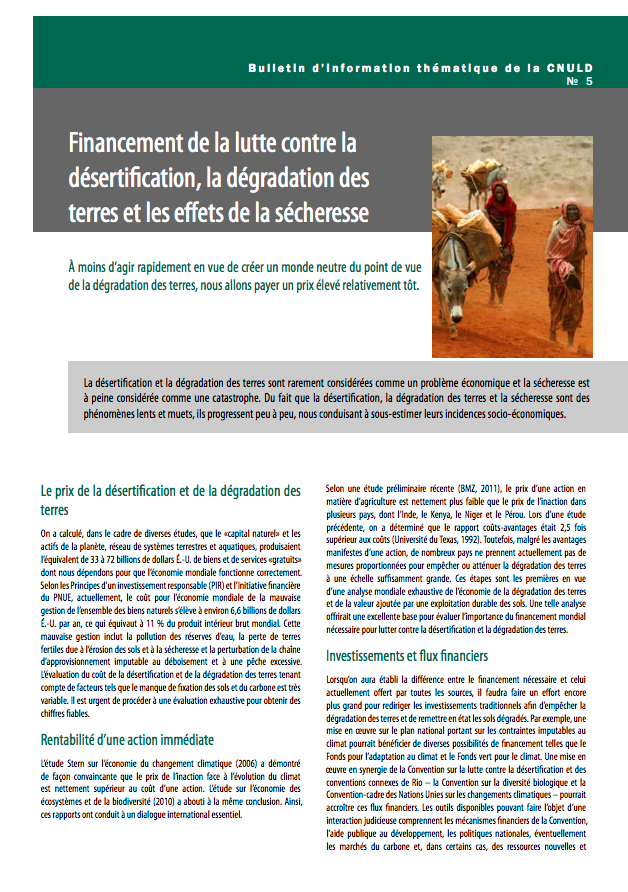The pastoralist’s parcel: towards better land tenure recognition and climate change response in Kenya’s dry lands
Conventional notions of the ‘land parcel’ have been extended: previously unrecognized tenures including customary, nomadic, or communal interests are now incorporated into the concept. Technical tools including the Social Tenure Domain Model (STDM) enable these new understandings to be operationalized in land administration systems. The nomadic pastoralists of Kenya’s dry land regions illustrate where these new approaches can be applied.
Large Scale Land Acquisitions in Mozambique: Ways Forward in ‘Pro-Poor’ and Participatory Land Governance
In international debates about land governance, Mozambique is often mentioned as an example of a country with favorable framework for local communities to benefit from landbased investments. However, it is also one of the countries highlighted in land grab debates for being one of the top countries where foreign companies and national elites are acquiring large extensions of land. It is increasingly clear that in spite of the favorable legal framework and pro-poor policies, local communities are under stress.
Simulating Future Forest Cover Changes in Pakxeng District, Lao People’s Democratic Republic (PDR): Implications for Sustainable Forest Management
Future forest cover changes were simulated under the business-as-usual (BAU), pessimistic and optimistic scenarios using the Markov-cellular automata (MCA) model in Pakxeng district, Lao People’s Democratic Republic (PDR). The Markov chain analysis was used to compute transition probabilities from satellite-derived forest cover maps (1993, 1996, 2000 and 2004), while the “weights of evidence” procedure was used to generate transition potential (suitability) maps.
Uganda : Country Environmental Analysis
A Country Environmental Analysis (CEA)
is a World Bank analytical tool used to integrate
environmental issues into development assistance strategies,
programs, and projects. To that end, the CEA synthesizes
environmental issues, highlights the environmental and
economic implications of development policies, and evaluates
the country's environmental management capacity. It is
composed of three analytical building blocks: the
Policy Note : Environmental Management for a Sustainable Economic Development Strategy for Nanggroe Aceh Darussalam
This policy note, Environmental
Management for a Sustainable Economic Development Strategy
for Nanggroe Aceh Darussalam, investigates six environmental
management topics which will affect the capacity of the
province to develop the economy and need to be underpinned
by strong environmental and natural resource management. The
six topics cover: agriculture, forestry, fisheries, land and
water, environmental law and regulations, and spatial
An assessment of IFPRI’S work in Ethiopia 1995–2010: Ideology, influence, and idiosyncrasy
This study provides an assessment of the impact of the International Food Policy Research Institute (IFPRI)’s work in Ethiopia during the period of 1995–2010. From 1995 to 2004, nearly all of IFPRI’s Ethiopia work was undertaken by Washington-based research teams working on specific themes under various “global research programs” (GRPs). In each case, Ethiopia represented one of several case studies in a larger multicountry study.
Financement de la lutte contre la désertification, la dégradation des terres et les effets de la sécheresse
La désertification et la dégradation des terres sont rarement considérées comme un problème économique et la sécheresse est à peine considérée comme une catastrophe. Du fait que la désertification, la dégradation des terres et la sécheresse sont des phénomènes lents et muets, ils progressent peu à peu, nous conduisant à sous-estimer leurs incidences socio-économiques
Better land use, better future for all: partnering with civil society to enhance sustainable land management in Sub-Saharan Africa
Land degradation is a serious problem in Sub-Saharan Africa, where up to two-thirds of the productive land area is reported to be degraded to some extent. Local communities suffer the most from the degradation of their land and they are therefore fundamental to the widespread adoption of sustainable land management (SLM) techniques.
Determinants of Farmers' Preference for Sustainable Land Management Practices for Maize and Cassava Production in Ogun State, Nigeria
In order to ensure agricultural sustainability, as highlighted in the millennium development goals, it has become necessary to focus policies on enhancing sustainable land management, especially in vulnerable areas of sub-Saharan Africa. Hence there is the need for this study which was designed to analyze the determinants of farmers’ adoption of Sustainable Land Management Practices (SLMP) in the production of maize and cassava in Ogun State. Multi-stage sampling technique was adopted in this study. The data for study was collected from 338 farmers with the use of questionnaire.









